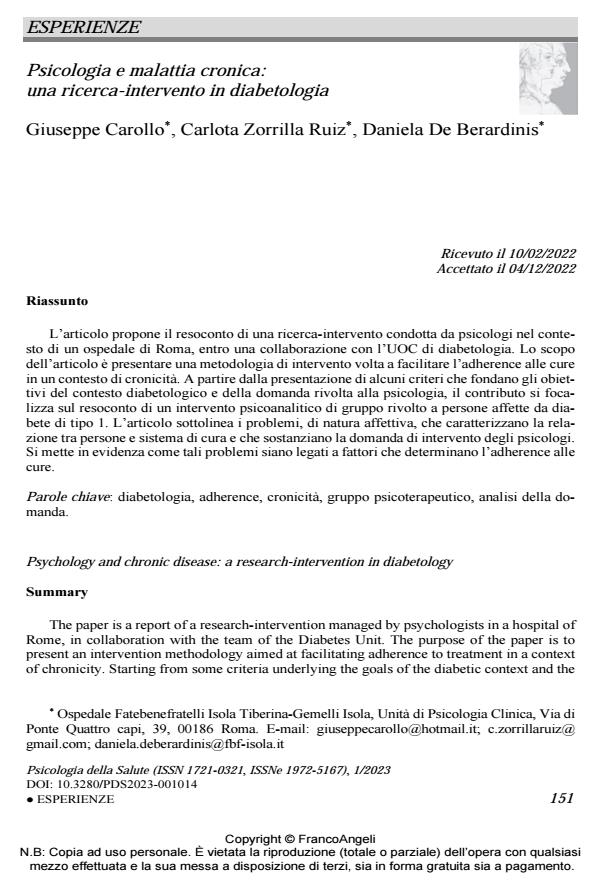Psychology and chronic disease: a research-intervention in diabetology
Journal title PSICOLOGIA DELLA SALUTE
Author/s Giuseppe Carollo, Carlota Zorrilla Ruiz, Daniela de Berardinis
Publishing Year 2023 Issue 2023/1
Language Italian Pages 16 P. 151-166 File size 240 KB
DOI 10.3280/PDS2023-001014
DOI is like a bar code for intellectual property: to have more infomation
click here
Below, you can see the article first page
If you want to buy this article in PDF format, you can do it, following the instructions to buy download credits

FrancoAngeli is member of Publishers International Linking Association, Inc (PILA), a not-for-profit association which run the CrossRef service enabling links to and from online scholarly content.
The paper is a report of a research-intervention managed by psychologists in a hospital of Rome, in collaboration with the team of the Diabetes Unit. The purpose of the paper is to pre-sent an intervention methodology aimed at facilitating adherence to treatment in a context of chronicity. Starting from some criteria underlying the goals of the diabetic context and the demand addressed to psychology, the focus of the paper is on a psychoanalytic group interven-tion, addressed to people with type 1 diabetes. The paper highlights the emotional problems which characterize the relationship between people and the system of care, and which substan-tiate the demand for psychological intervention. It is highlighted how these problems are linked to factors that determine the adherence to care.
Keywords: diabetology, adherence, chronicity, psychotherapeutic group, analysis of the de-mand.
Giuseppe Carollo, Carlota Zorrilla Ruiz, Daniela de Berardinis, Psicologia e malattia cronica: una ricerca-intervento in diabetologia in "PSICOLOGIA DELLA SALUTE" 1/2023, pp 151-166, DOI: 10.3280/PDS2023-001014